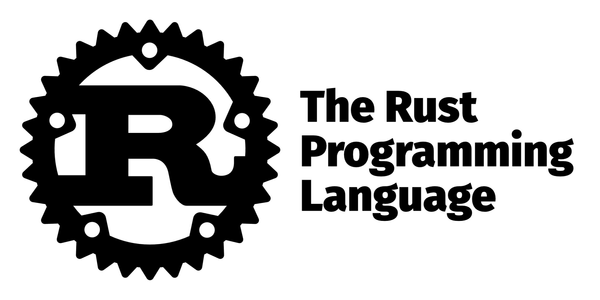Understanding map and filter_map in Rust: Handling Arrays with Option and Result Values

When working with collections in Rust programming language, especially arrays or vectors, it's common to encounter elements inside arrays wrapped in Option or Result types. Rust provides powerful iterator methods like map and filter_map to manipulate these arrays efficiently. In this blog post, we'll explore how map and filter_map behave when operating on arrays containing Option and Result values. We'll provide code examples and explanations to illustrate these concepts clearly.
Table of Contents
- Introduction to
mapandfilter_map - Scenario 1: Arrays with Mixed
OptionValues - Scenario 2: Arrays with Mixed
ResultValues - When to Use
mapvs.filter_map - Conclusion
Introduction to map and filter_map
Before diving into specific scenarios, let's briefly understand what map and filter_map do in Rust.
map: Applies a function to each element in an iterator, producing a new iterator with the results.filter_map: Combines the functionality offilterandmap. It applies a function that returns anOption<T>to each element. If the function returnsSome(value), that value is included in the new iterator. If it returnsNone, the value is skipped.
Scenario 1: Arrays with Mixed Option Values
Consider an array that contains a mix of Some and None values:
let numbers = [Some(1), None, Some(3), None, Some(5)];
Using map with Option Values
When we use map on an iterator of Option values, the function we provide is applied to each element, regardless of whether it's Some or None. However, since None doesn't contain a value, we must handle it appropriately to avoid runtime errors.
Example:
let numbers = [Some(1), None, Some(3), None, Some(5)];
let incremented_numbers: Vec<Option<i32>> = numbers.iter().map(|num_option| {
match num_option {
Some(num) => Some(num + 1),
None => None,
}
}).collect();
println!("{:?}", incremented_numbers);
Output:
[Some(2), None, Some(4), None, Some(6)]
Explanation:
- We iterate over each
Option<i32>innumbers. - For
Some(num), we apply the functionnum + 1and wrap the result back inSome. - For
None, we simply returnNone.
Key Points:
- The output is a
Vec<Option<i32>>, maintaining the same structure as the input. mapdoesn't filter outNonevalues; it processes each element individually.
Using filter_map with Option Values
filter_map is useful when we want to transform only to Some values and discard None values.
Example:
let numbers = [Some(1), None, Some(3), None, Some(5)];
let incremented_numbers: Vec<i32> = numbers.iter().filter_map(|num_option| {
num_option.map(|num| num + 1)
}).collect();
println!("{:?}", incremented_numbers);
Output:
[2, 4, 6]
Explanation:
- We iterate over each
Option<i32>innumbers. num_option.map(|num| num + 1):- If
num_optionisSome(num), it returnsSome(num + 1). - If
num_optionisNone, it returnsNone.
- If
filter_maponly collects theSomevalues, soNonevalues are discarded.- The output is a
Vec<i32>, containing only the incremented numbers.
Key Points:
filter_mapeffectively filters outNonevalues.- It allows us to work directly with the inner values of
Some.
Scenario 2: Arrays with Mixed Result Values
Now, let's consider an array containing Result values, which may be Ok or Err.
let results = [Ok(1), Err("error"), Ok(3), Err("failed"), Ok(5)];
Using map with Result Values
Using map on an iterator of Result values applies the function to Ok values and leaves Err values unchanged.
Example:
let results = [Ok(1), Err("error"), Ok(3), Err("failed"), Ok(5)];
let incremented_results: Vec<Result<i32, &str>> = results.iter().map(|res| {
match res {
Ok(num) => Ok(num + 1),
Err(e) => Err(*e),
}
}).collect();
println!("{:?}", incremented_results);
Output:
[Ok(2), Err("error"), Ok(4), Err("failed"), Ok(6)]
Explanation:
- We iterate over each
Result<i32, &str>inresults. - For
Ok(num), we applynum + 1and wrap the result back inOk. - For
Err(e), we returnErr(e)unchanged. - The output maintains the structure of
Result, preservingErrvalues.
Key Points:
mapdoes not filter outErrvalues; they are passed through unchanged.- The function is only applied to
Okvalues.
Using filter_map with Result Values
We can use filter_map along with the ok() method to filter out' Err' values and only process' Ok' values.
Role of the ok() Method
- The
ok()method converts aResult<T, E>into anOption<T>.Ok(value).ok()returnsSome(value).Err(_).ok()returnsNone.
Example:
let results = [Ok(1), Err("error"), Ok(3), Err("failed"), Ok(5)];
let incremented_values: Vec<i32> = results.iter().filter_map(|res| {
res.ok().map(|num| num + 1)
}).collect();
println!("{:?}", incremented_values);
Output:
[2, 4, 6]
Explanation:
- We iterate over each
Result<i32, &str>inresults. res.ok()converts theResultinto anOption<i32>:- For
Ok(num), it returnsSome(num). - For
Err(_), it returnsNone.
- For
map(|num| num + 1)is applied only toSome(num)values.filter_mapcollects the resultingSomevalues, discardingNone.- The output is a
Vec<i32>containing only the incremented numbers fromOkvalues.
Key Points:
filter_mapwithok()filters outErrvalues.- Only
Okvalues are transformed and collected. - The
ok()method is essential in convertingResulttoOptionfor this use case.
When to Use map vs. filter_map
Understanding the behavior of map and filter_map is crucial for writing concise and safe Rust code.
- Use
mapwhen:- You want to apply a function to every element in an iterator.
- You need to preserve the structure of the original collection, including
NoneorErrvalues. - Example: Transforming values but keeping track of missing data or errors.
- Use
filter_mapwhen:- You want to both filter and transform elements in a single operation.
- You're only interested in the
SomeorOkvalues and wish to discardNoneorErrvalues. - Example: Extracting valid results and ignoring failures.
Conclusion
Rust's iterator methods map and filter_map provide powerful ways to process collections containing Option and Result types. You can write more efficient and expressive code by understanding how these methods interact with Some, None, Ok, and Err values.
map: Transforms each element individually, preserving the collection's structure.filter_map: Filters out unwanted elements (NoneorErr) and applies transformations to the rest.
Using these methods appropriately allows you to handle complex data transformations easily, leading to cleaner and more maintainable code.
Happy coding in Rust!




